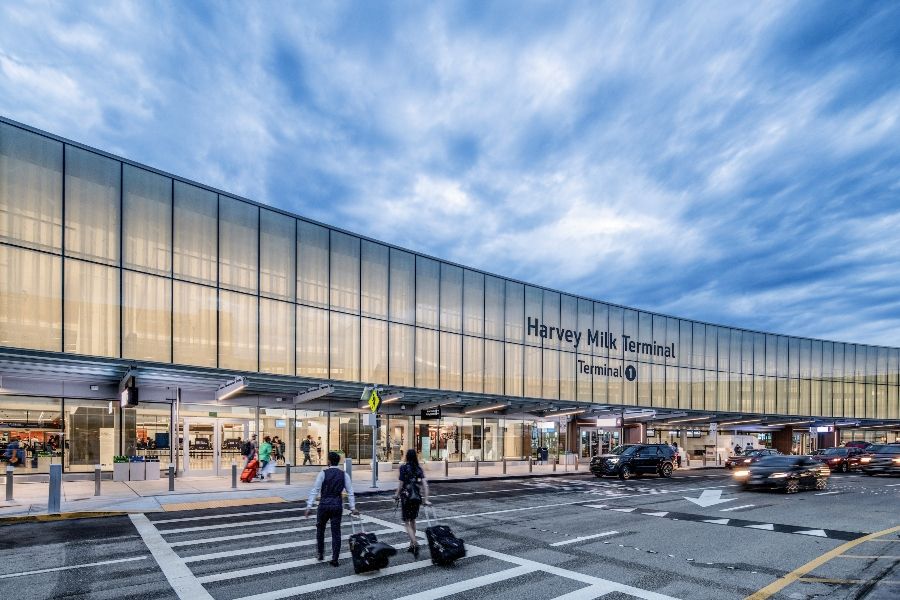ECO Solidarity to Feature Lead European Designers and Studios
The third iteration of ECO Solidarity is set to take place at this year’s WantedDesign Manhattan, co-located with the International Contemporary Furniture Fair (ICFF) at the New York’s Javits Center May 15 – 17, 2022. Launched in 2020 as an international, multidisciplinary initiative and movement, this year’s ECO Solidarity will feature lead designers and studios from nine European countries, represented by the European Union National Institutes for Culture (EUNIC NY) introducing their transformative solutions for sustainability in design.
Encompassing research, craft and technology—or a combination of all three—these projects offer a range of approaches, from investigating the daily life of our homes and cities to examining complex systems, processes and practices that support a more equitable and sustainable future.
Participating designers and studios include: EOOS NEXT (Austria), Herrmann & Coufal (Czech Republic), Livable Platform (Flanders, Belgium), MOYA Birch Bark (Germany), AHA Objects (Malta), NASDRA Conscious Design (Poland), SUSDESIGN (Portugal), Atelier Ad Hoc (Romania), crafting plastics! studio (Slovakia).
“Placing nature, environment and people at the center of the design and production process and moving from conversation to action and implementing sustainable scenarios should be the design industry’s common goal,” said Odile Hainaut and Claire Pijoulat, Founders of WantedDesign.
“As directors and curators of a major U.S. design event, we have the opportunity to give a voice to those pioneering active, scalable responses to environmental challenges experienced globally and locally. More than ever, ECO Solidarity with its call to action, should find a receptive and engaged audience in New York this May. We are extremely proud to partner with EUNIC and nine of its cultural organizations to present the initiative and projects of talented European studios in New York.”
Answering the Climate Emergency through Exceptional Design
With the goal of uniting design and other disciplines to create ecologically-sound, human-centered, hands-on solutions, ECO Solidarity is a collective act of resistance to the climate emergency through design. The remarkably applicable projects, which can be implemented on micro and macro scales, advance the circular economy, address the key principles of the European Green Deal, and contribute to the implementation of the UN Agenda 2030 and its Sustainable Development Goals (SDGs).
“It is time to end the model of ‘make, take, break and throw away’ that is so harmful to our planet, our health and our economy,” said Ambassador Silvio Gonzato, Deputy Head of the European Union Delegation to the United Nations, “ECO Solidarity 2022 demonstrates the value of the European Union’s Circular Economy agenda in practice. It saves energy and natural resources, and allows consumers to make smart environmental choices, such as repairing instead of replacing their broken products.
“This is how we bring balance back in our relationship with nature, foster innovation and generate high-skills jobs. The EU has been pushing the Circular Economy since 2015. Only two weeks ago, we presented a new package of measures on eco-design and sustainability in the textile, digital and construction sectors. More circularity and resource efficiency also mean more resilience when a crisis disrupts our industrial supply chains.”
Whether highlighting personal and environmental benefits of DIY (Herrmann & Coufal), transforming construction waste into outdoor furniture that functions as public art and reminds of the loss of significant buildings (AHA Objects), exploring the potential of alternative production materials, bioremediation and bioelectronics (NASDRA Conscious Design) or using design to raise visibility for local knowledge and to foster cross-cultural, multi-disciplinary partnerships (Livable Platform), the participating designers uncover new possibilities and contribute to changing common practices of the design industry and public.
Embodying inclusion, collaboration and multiple perspectives, ECO Solidarity provides an opportunity for emerging European designers to present their work and participate in the wider discourse of WantedDesign Manhattan and ICFF.
Two Incredible, Insightful Discussions
Attendees of WantedDesign Manhattan and ICFF will have an opportunity to hear the ECO Solidarity designers share their insights and vision in two informative talks held on the show floor. Talks are open to all fair attendees and the media, with no reservations required.
The current itinerary is as follows:
Sunday, May 15, 11: 30 am. ECO Solidarity, Part One: Doing It!
Moderated by Simone Rothman, Co-Founder, FutureAir
Presenters: Aha Objects (Malta), Atelier Ad Hoc (Romania), EOOS Next (Austria), Hermann & Coufal (Czech Republic), Livable Platform (Flanders/Belgium).
Monday | May 16, 11:30 am. ECO Solidarity, Part Two: Doing It!
Moderator: Jonsara Ruth, Design Director and Co-Founder, Healthy Materials Lab, Parsons School of Design
Presenters: Crafting Plastics! Studio (Slovakia), Moya Birch Bark (Germany), NASDRA Conscious Design (Poland), SusDesignHealthy and Sustainable Design Solutions (Portugal).
“The role of cultural diplomacy in this day of age, when the Earth’s life-supporting systems on which we fundamentally depend are in jeopardy due to our human mistakes, is to raise awareness and sensitivity around the key environmental issues, to provide space for thought and dialogue, to inspire, and to educate,” added Izabela Gola, Visual Arts and Design Curator at the Polish Cultural Institute New York.
“In the spirit of the Polish Solidarność movement established in 1980, we want to resist ecological devastation. Our goal is to redefine sustainable design by inspiring the change from within industries, proving that sustainability is not just a trend, but grounds for a new state of consciousness with ready-to-be-implemented, hands-on solutions. Facing multiple crises, it is especially important to be alarmist, because whatever we do about the climate emergency in the coming years will impact the next millennium.”






